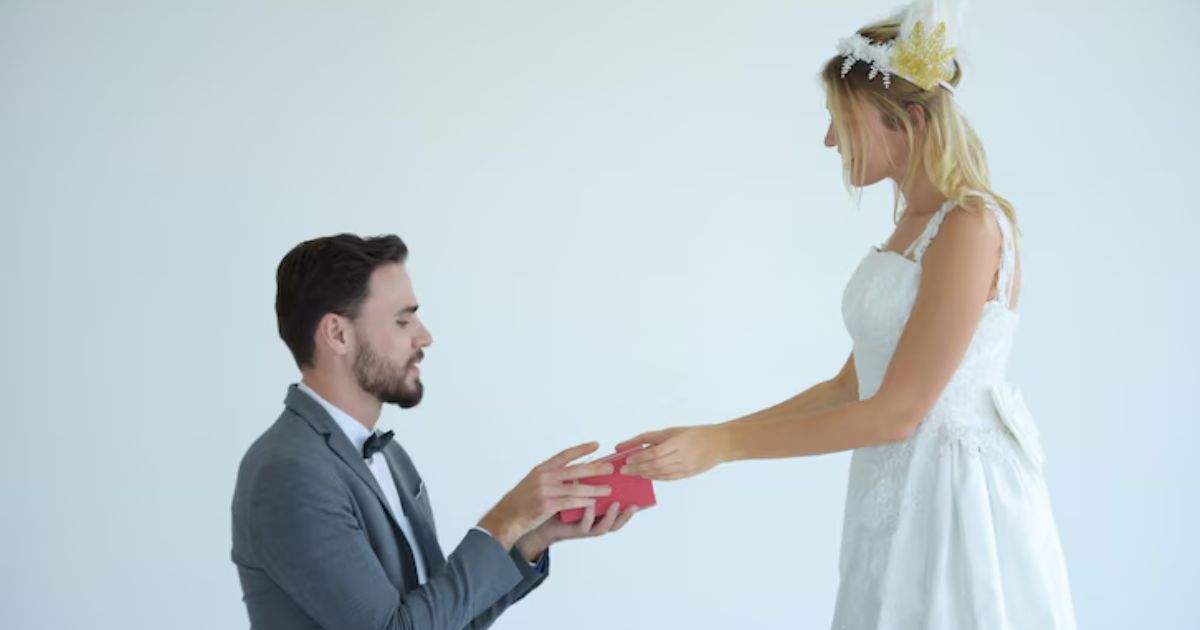Eloping once carried a rebellious connotation—think of lovers fleeing into the night, escaping societal constraints. Today, the meaning of eloping has evolved dramatically. While it still involves a departure from tradition, eloping now often signifies a deeply personal, intimate decision between two people who want to get married on their own terms. It’s not about running away anymore; it’s about running toward what matters most.
Historical Background of Eloping
In centuries past, eloping typically referred to a couple marrying in secret, without parental or societal approval. This was common in cultures where marriages were arranged, and love wasn’t the primary factor in partner selection. Shakespeare’s plays, like Romeo and Juliet, showcased dramatic examples of elopement. It symbolized rebellion, risk, and often tragedy. The meaning has matured over time, shedding the taboo and gaining acceptance as a modern alternative to traditional weddings.
Modern-Day Meaning of Eloping
Today, eloping doesn’t necessarily mean secrecy or scandal. It often refers to a small, intentional wedding ceremony, usually with minimal guests or even none at all. Couples choose to elope to focus on their connection rather than entertain a large crowd. It’s about intimacy over extravagance, meaning over materialism. In short, modern eloping is about stripping away the noise and celebrating love simply and authentically.
Why Couples Choose to Elope
Couples may choose to elope for many reasons—budget, stress, personal values, or even wanderlust. Some are overwhelmed by the pressure of planning a big wedding. Others want to avoid family drama or financial strain. For many, eloping is a way to celebrate their love in a location that matters to them, whether that’s a mountain peak, a quiet beach, or a city courthouse. It’s not about rejecting family but about prioritizing the relationship.
Eloping Versus Traditional Wedding
While traditional weddings involve large gatherings, formal attire, and detailed planning, elopements offer the opposite—freedom, flexibility, and intimacy. Traditional weddings follow a script, often dictated by culture or family expectations. Eloping breaks that script. You don’t need a bridal party, banquet hall, or a 300-person guest list. All you need is each other and a commitment to love.
The Emotional Value of Eloping
Eloping centers the couple. There’s often more emotional depth in an elopement because the focus is solely on the bond between two people. There are fewer distractions, fewer expectations, and fewer performative elements. It’s raw, real, and personal. Many couples say eloping helped them feel more connected and present during their wedding.
Eloping and Family Reactions
While some families fully support elopements, others might feel left out or disappointed. Clear, kind communication is key. Explaining your reasons, and possibly involving them in a post-elopement celebration, can bridge the gap. Eloping doesn’t have to mean severing ties. It can be an opportunity to redefine how love and marriage are celebrated in your family.
Legal Aspects of Eloping
Just because it’s small doesn’t mean it’s less official. Elopements still require legal steps—licenses, officiants, and sometimes witnesses. The rules vary by country and state, so couples must do their homework to ensure their marriage is legally binding. Planning the legalities ahead of time ensures that the emotional moment also stands up on paper.
How to Plan an Elopement
Planning an elopement isn’t as simple as showing up. Though it’s often less complex than a traditional wedding, it still involves choosing a location, handling legal documents, hiring an officiant, and possibly a photographer. Some couples include a few guests; others keep it just between them. The beauty of eloping lies in its flexibility—it’s a wedding without the weight of expectations.
Elopement Destinations and Ideas
The possibilities are endless. Whether it’s an alpine meadow, a foreign city, or your backyard, elopement destinations can be as grand or simple as you like. Some popular spots include Iceland’s waterfalls, Parisian rooftops, national parks, or even Las Vegas chapels. What matters is choosing a place that resonates with your story as a couple.
Cost Advantages of Eloping
One of the biggest advantages of eloping is financial. Traditional weddings can cost tens of thousands of dollars, while elopements typically cost far less. This allows couples to invest in experiences—like travel—or save for a home or future family. Eloping isn’t about being cheap; it’s about spending meaningfully.
How Social Media Has Changed Eloping
In the Instagram era, eloping has become more visible and even glamorous. Couples now share their elopement photos and stories online, helping to destigmatize the concept. It’s gone from something whispered about to something celebrated and admired. Social media has helped redefine elopement as something stylish, adventurous, and deeply emotional.
Cultural Perceptions of Eloping
In some cultures, eloping is still taboo, while in others, it’s becoming more accepted. The changing global perspective shows a shift toward individual choice over tradition. Younger generations are especially open to eloping as they seek authenticity and freedom in their life decisions. As the meaning of family and marriage evolves, so does the meaning of eloping.
Elopement Etiquette in the Modern World
Even if you’re eloping, there are still some unspoken rules of etiquette. Informing close family and friends—either before or after—is a gesture of respect. Sending announcements or hosting a casual post-elopement party can help loved ones feel included. Remember, it’s your day, but kindness goes a long way in keeping relationships intact.
Debunking Myths About Eloping
People often believe eloping is rushed, immature, or selfish. In reality, eloping is often a thoughtful, intentional act. It doesn’t mean you don’t value your family—it means you value your relationship enough to shape your wedding around what works best for both of you. Eloping isn’t about exclusion; it’s about prioritization.
How to Make Your Elopement Special
Just because it’s small doesn’t mean it can’t be magical. Personalized vows, meaningful locations, special clothing, or even handwritten letters exchanged privately can elevate an elopement into something unforgettable. The absence of a crowd allows space for creativity and sincerity to shine through.
Post-Elopement Celebration Ideas
Many couples follow their elopement with a celebration later—whether that’s a small dinner, a casual backyard gathering, or a full reception. This allows the best of both worlds: intimacy during the vows and a shared celebration afterward. It also gives family and friends something to look forward to and be part of.
Conclusion
At its core, eloping is about freedom—the freedom to love, to choose, and to celebrate in a way that feels right. It’s not running away. It’s running toward something beautiful, brave, and deeply personal. Whether on a mountaintop or in a quiet city hall, eloping honors love in its purest form. It’s not less than a traditional wedding; it’s simply different—and often, far more meaningful.
FAQs
Is eloping legally binding?
Yes, as long as you follow your local jurisdiction’s marriage laws—like getting a license and having a legal officiant—your elopement is legally binding.
Can you have guests at an elopement?
Absolutely. While elopements are often just the couple, some include a few close friends or family. It’s completely up to you.
How much does it cost to elope?
The cost varies widely but is generally much lower than a traditional wedding. Expect to spend between a few hundred to a few thousand dollars.
Do people regret eloping?
Most people who choose to elope don’t regret it. However, it’s important to ensure it aligns with both partners’ desires and expectations.
Can you still wear a wedding dress if you elope?
Of course! Many eloping couples wear traditional wedding attire. It’s your day—dress however you feel best.















